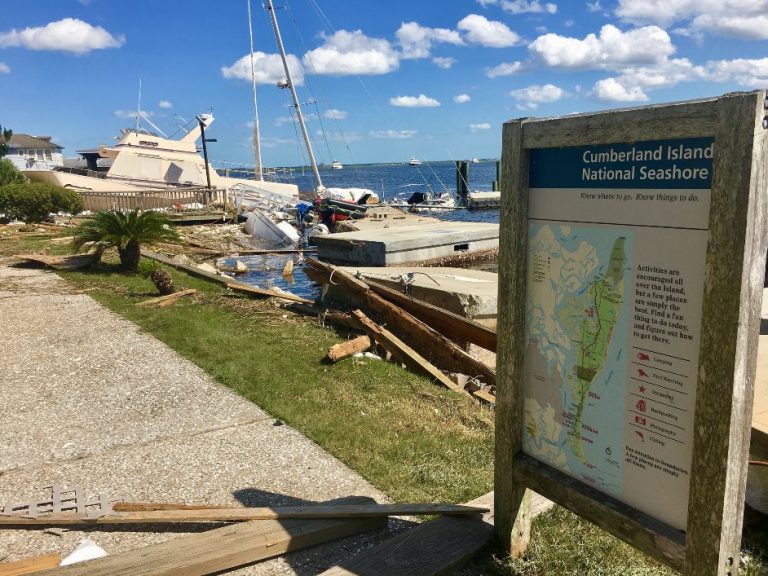
Florida’s governor has directed the state’s Department of Business and Professional Regulation’s (DBPR) to suspend certain regulations and fees that may prevent, hinder or delay necessary response and recovery efforts from Hurricane Irma. This order applies to all counties identified in the Major Disaster Declaration and will help Floridians more quickly repair and rebuild their homes and businesses.
To view the Emergency Order, click HERE.
The question is whether the rules suspension will increase the risk of scammers and questionable construction standards. At least one local observer says there will be problems with illicit operations, but these will happen regardless of the regulatory rule relaxation.
“Right now, families across the state are beginning the challenging process of repairing and rebuilding their homes and businesses after the impact of this massive storm,” Gov. Rick Scott said in a Sept. 15 news release. “It is incredibly important that we do all we can to make it easier for these families to quickly and safely recover, which is why I have directed DBPR to take immediate action to suspend certain regulations that would hinder or delay recovery efforts. We will continue to work closely with our communities across the state to make sure they have all they need to help Florida fully rebuild and recover from Hurricane Irma.”
DBPR Secretary Jonathan Zachem said: “Many Floridians have been adversely impacted by Hurricane Irma. Under Governor Scott’s leadership, the department is working to suspend burdensome regulations and provide the resources needed during this difficult time to help quickly repair and rebuild.”
The emergency order allows licensed general, building, and residential contractors to perform roofing repair and installation and also permits local governments to authorize local and specialty contracting licenses for individuals and businesses that are already licensed in jurisdictions throughout Florida so they can perform roofing repair and installation in impacted areas.
This will allow areas of the state most affected by Hurricane Irma to be flexible and assist Floridians with immediate restoration during this difficult time. Florida’s high building standards and safety requirements will not be affected. Lastly, the order waives all Department fees for occupational or professional businesses who must relocate or reopen because of damage caused by Irma and its effects.
The question is whether the rebuilding process and reduced regulatory load will cause problems with questionable businesses and individuals exploiting vulnerabilities caused by the disaster.
“Lots of money is going to be spent but when there are buckets of money being dumped out there are boatloads of scammers and thieves crawling in from everywhere,” said one local construction industry observer.
However, he said he doesn’t expect the relaxation of DBRP regulations will make things worse, suggesting that enforcement of regulations was spotty even before the hurricane.
“Some have been getting away with it for years & some of them even have licenses so a license doesn’t stop them,” he wrote in a note to Florida Construction News. “Plus there are many qualified contractors from outside Florida (who) will come to do work and some of those would be more qualified than some that have been here for years.”
“A license doesn’t prove one knows how to build anything, it only shows that they can pass a test,” he wrote.
The emergency order will correspond with the effective dates of Gov. Scott’s Executive Order 17-235 and any extensions thereof, the government news release said.
Meanwhile, the Federal Emergency Management Agency (FEMA) has issued a news release advising hurricane victims how to avoid being taken advantage by scammers.
FEMA says individuals “should be alert for false rumors, scams, identity theft, and fraud. Although many Americans are working hard to help their neighbors now, during chaotic times, some will always try to take advantage of the most vulnerable.”
Here are a few guidelines to protect yourself, or someone you care about, from disaster fraud:
- Federal and state workers do not ask for, or accept, money. FEMA staff will never charge applicants for disaster assistance, home inspections, or help filling out applications. Stay alert for false promises to speed up the insurance, disaster assistance, or building permit process.
- In person, always ask to see any FEMA employee ID badges. FEMA Disaster Survivor Assistance teams may be in impacted communities providing information and assisting survivors with the registration process or their applicant files.
- A FEMA shirt or jacket is not proof of identity. All FEMA representatives, including contracted inspectors, will have a laminated photo ID. All National Flood Insurance Program adjusters will have a NFIP Authorized Adjuster Card with their name and the types of claims they may adjust.
- If you are unsure or uncomfortable with anyone you encounter claiming to be an emergency management official, do not give out personal information, and contact local law enforcement.
- If you suspect fraud, contact the National Center for Disaster Fraud’s hotline at 1-866-720-5721, or email the organization at disaster@leo.gov. You can also report fraud to the Federal Trade Commission at www.ftccomplaintassistant.gov. Learn more about the National Center for Disaster Fraud at www.justice.gov/disaster-fraud.
In Florida, disaster-related fraud information is available on the State Attorney General’s Office website at www.MyFloridaLegal.com, or by calling the office at 1-866-966-7226.
Hurricane survivors are also encouraged to notify local authorities to cases of lawlessness or violence, especially in hurricane shelters. In an emergency, call 9-1-1. For other cases, report suspicious/criminal activity to 1-855-352-7233.